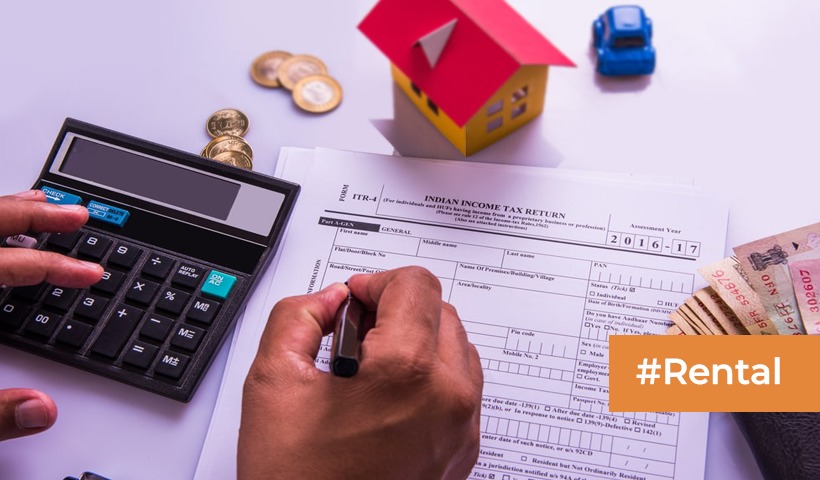How Tenants and Landlords Handle Registration Fees for Rental Agreements
In the realm of renting properties, clarity regarding financial responsibilities is crucial for both tenants and landlords. One common query that arises is, “Who pays for registration of rent agreement?” Understanding the dynamics of registration fees is essential to ensure a smooth renting process and to avoid any misunderstandings. Let’s delve into this topic and shed light on the roles of both parties.
Understanding Registration Fees
Registration fees are incurred when formalizing a rental agreement with legal authorities. This fee covers the documentation and registration process required by law to authenticate the agreement. It’s a nominal charge but holds significant legal weight, providing protection to both tenants and landlords.
The Landlord’s Perspective
From the landlord’s standpoint, the registration fee is typically considered a part of the overall expenses associated with renting out a property. However, the specifics can vary depending on local laws and agreements between the parties involved.
Responsibilities of the Landlord
Landlords are generally responsible for initiating the registration process and bearing the associated costs. This includes preparing the necessary documents, paying the registration fee, and ensuring compliance with legal requirements.
The Tenant’s Perspective
Tenants, on the other hand, are often concerned about additional expenses when entering into a rental agreement. Understanding their role in the registration process is crucial for a transparent renting experience.
Tenant’s Contribution
While tenants may not directly pay the registration fee, it’s essential to clarify whether it’s included in the initial deposit or rent. In some cases, landlords may incorporate these expenses into the overall rental cost, which tenants should be aware of before signing the agreement.
Who Pays for Registration of Rent Agreement?
The question of who bears the registration fee ultimately boils down to local regulations, negotiation between the parties, and the terms outlined in the rental agreement.
Factors Influencing Payment Responsibility
Several factors determine whether the landlord or tenant pays for the registration of the rent agreement:
- Local Laws: Legal requirements regarding rental agreements vary across regions, impacting who shoulders the registration fee.
- Negotiation: The terms of the rental agreement, including financial responsibilities, are often subject to negotiation between the landlord and tenant.
- Agreement Terms: Clauses specifying payment responsibilities for registration fees should be clearly outlined in the rental agreement to avoid confusion.
Legal Implications and Benefits
Understanding the legal implications and benefits associated with registration fees is crucial for both parties involved in a rental agreement.
Legal Compliance
Registering a rental agreement ensures legal compliance and offers protection against disputes or breaches of contract. It establishes a formal record of the terms agreed upon by both parties, minimizing potential conflicts.
Tenant Rights
For tenants, a registered rental agreement provides assurance of their rights and entitlements as per the terms outlined in the agreement. It safeguards against arbitrary changes or eviction threats by the landlord.
Landlord Protection
From the landlord’s perspective, a registered rental agreement serves as a safeguard against non-payment of rent, property damage, or violation of terms by the tenant. It facilitates legal recourse in case of disputes or lease violations.
FAQs (Frequently Asked Questions)
Q: Can landlords refuse to register the rental agreement? A: Landlords are legally obligated to register the rental agreement in compliance with local laws. Refusal to do so may result in penalties or legal consequences.
Q: Do tenants have to pay the registration fee separately? A: It depends on the terms agreed upon in the rental agreement. Sometimes, the registration fee is included in the overall rent or deposit, while in other cases, it may be a separate payment.
Q: How much is the registration fee for a rental agreement? A: The registration fee varies depending on the location and the duration of the rental agreement. It’s typically a nominal amount determined by local authorities.
Q: What happens if the rental agreement is not registered? A: Failure to register the rental agreement may render it invalid in the eyes of the law, compromising the legal rights of both the landlord and the tenant.
Q: Who initiates the registration process for a rental agreement? A: The responsibility for initiating the registration process usually lies with the landlord, as they are the property owner.
Q: Can tenants request a copy of the registered rental agreement? A: Yes, tenants have the right to request a copy of the registered rental agreement for their records and reference.
Conclusion
Navigating the intricacies of rental agreements, including registration fees, is essential for both tenants and landlords. By understanding their respective roles and responsibilities, they can ensure a transparent and legally compliant renting experience. Clear communication, adherence to local laws, and comprehensive documentation are key to fostering a harmonious landlord-tenant relationship.
Disclaimer: The views expressed above are for informational purposes only based on industry reports and related news stories. PropertyPistol does not guarantee the accuracy, completeness, or reliability of the information and shall not be held responsible for any action taken based on the published information.




